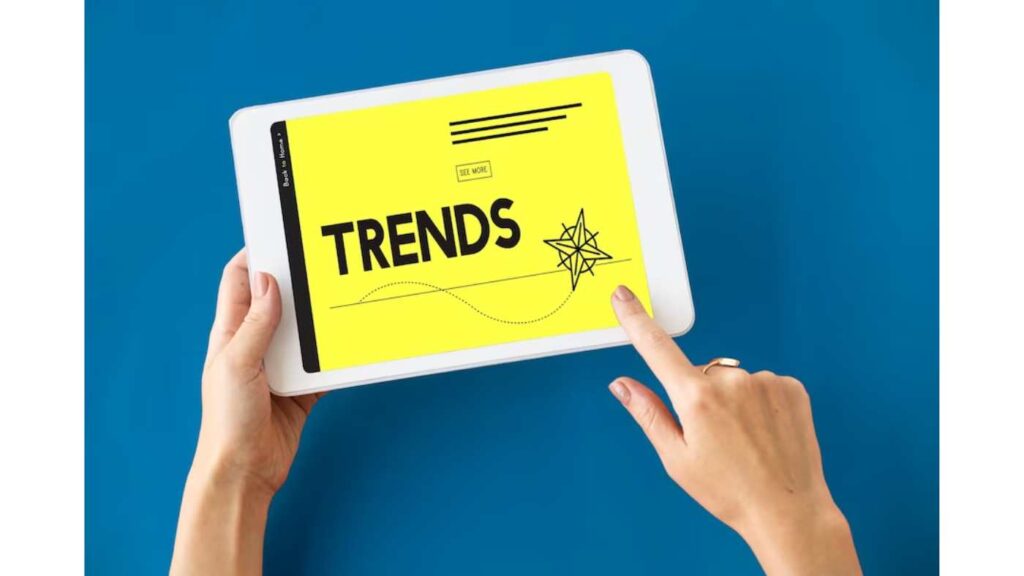
Over the last decade, we have experienced a massive shift in how brands engage with their customers. This revolution in the retail industry is manifested in part by evolving consumer behaviours and the ever-changing trends of brands.
Brands are required to constantly adapt in order to stay relevant in this fast-paced, consumerist society. One such way to do that is by adapting their strategies to craft innovative trends to keep up with changing customer behaviour.
What Makes D2C Brands Unique?

D2C brands demonstrate a significant advantage over most other businesses. This is because they don’t require conventional shopping channels, nor do they need traditional intermediaries to reach an audience anymore. This enables D2C brands to establish greater bonds with their users and allows them to deliver a more personalised purchasing experience for them. By the way, we wrote another article covering personalised shopping experiences and what India’s Gen Z expect from your brand in 2024 here.
The D2C model of business means that companies can build a more direct and personal relationship with their customers. This means that they can leverage the changing trends to their advantage perfectly. According to research, native D2C brands will reach $44 billion in sales in 2023, with well-established D2C brands touching a record $138 billion.
What Are the Important D2C Trends?

In recent years, the D2C business model has grown increasingly popular in India. This trend has been a response to consumer behaviour, showing that users want a more unique, personal, and accessible experience from the brands they connect with.
Here are some important trends that D2C brands harness for 2024. Adopting these will definitely help D2C brands gain a competitive edge in the market and boost their sales.
1. Personalised customer experience
To start, let’s look at the most widely used D2C trend right now. It is wildly popular because it’s wildly successful. D2C brands are making the most of AI and technology-driven insights to provide their users with a much more individualistic, unique and personalised customer experience.
This includes offering users uniquely tailored product recommendations based on their interests and habits, curating demographic-specific marketing initiatives, and creating targeted branding strategies. It is reported that a whopping 91% of customers are more likely to shop with brands that offer a personalised touch to their retail experience, illustrating the impact this trend has on garnering and boosting sales.
2. Social Media Commerce

Social media commerce is a dynamic, ever-evolving field. It involves brands presenting their products, engaging with their clients, and facilitating purchases, all within the same common digital space. Some highly popular social media commerce trends that are spreading like wildfire today are video shopping, retail live streams, and AR (augmented reality) try-before-you-buy features.

Video shopping is gaining increasing popularity, especially on platforms like TikTok and Instagram. This involves influencers creating short video snippets or Reels to speak about their latest buys, providing bite-sized tidbits on their experience with the brand’s product.
Retail live streaming is another trend currently booming, especially in Eastern markets like China and Japan. This entails influencers and brands hosting live video calls where their audience can engage with them by asking questions and even making transactions in real-time. While it’s not made its way to Indian markets as yet, it has certainly proved worthy of consideration, especially for brands wishing to be pioneers of this trend in India.

Lastly, virtual AR try-ons for products like clothing, accessories, and makeup are already flooding the market. This is an exciting new trend that allows users to visualise how products will look before making a transaction, massively enhancing their shopping experience.
Social media commerce and its trends are gaining significant traction among customers as well as brands. It allows users to connect and engage with brands on a common platform. For the users, they get the excitement of discovering new and interesting products organically, while for retail brands, this serves as a powerful way to convert followers into loyal paying customers.
Looking forward to 2024, social media will continue to play a striking role in retail shopping. A look at the way D2C brands in the personal care industry will shine more light on this aspect. Brands such as Renee Cosmetics and WOW Skincare have adapted their approach to social media to harness its power and increase engagement with their users.
Renee Cosmetics has been a market leader in using AI filters and other such tools to get customers to experience their offerings in a new and improved light. Meanwhile, WOW Skincare has adopted an AIDCAS (Attention, Interest, Desire, Confidence, Action & Satisfaction) Framework for its social media strategy.

It entails paying attention to their consumers, analysing their purchase behaviour, their primary pain points, and their prominent inconveniences. Then, they leverage social media to help target specific audiences with particular products to ensure that their customers get exactly what they are looking for, guaranteeing user satisfaction.
3. Influencer Marketing

The third trend taking hold is influencer marketing. In fact, as India grows, more digital and more influencers are becoming household names. Their ability to influence is something that is being cleverly leveraged by D2C brands. It has indeed become a pivotal strategy for D2C companies as it allows them to reach wider audiences and promote their products to a whole new range and demographic of customers.

However, while athletes have been widely used as brand ambassadors for companies in the past, the tide is now turning. Sportsmen, celebrities, and athletes are popular figures but cost brands a significant amount of capital.
With a rise in networking platforms such as TikTok and Instagram, social media celebrities could very well be the next generation of brand ambassadors. Instagram personalities, YouTube streamers, and popular TikTok content creators could be an untapped demographic of influencers.
These personalities are more affordable for brands than actors or sportsmen but have similar reach in terms of followers on social media platforms. Some other examples could be finance influencers, Shark Tank winners, lifestyle bloggers, popular activists, famous health experts, and even gaming personalities.
In fact, with a revolution in women’s sports around the world currently, it might be long overdue to start making sportswomen the face of popular brands. This will attract an entirely new section of society and help the brand stand out from the crowd.

Furthermore, industry leaders also speak quite highly of the power of influencers in helping brands drive better engagement with their products. To create successful product campaigns, brands need to be able to understand and grasp the nuances of the local culture and trends in India. Achieving this requires collaboration with native influencers to come up with content that will resonate with the masses.
4. Subscription Model

Subscription models are a fantastic way to foster brand loyalty from their clients. These models are very useful since they allow a brand’s users to discover and buy products on a recurring basis easily. This can help create a loyal consumer following and encourage repeated transactions. Subscriptions are a great way of ensuring steady revenue for the brand, thereby boosting profitability.
Moreover, this trend is especially useful for users who use the same product regularly and would like to opt in for routine deliveries on a regular schedule (monthly/weekly, etc.).
The brand Nua Woman is one such example. Nua Woman has a unique subscription model where they offer monthly sanitary products for women who sign up. This is an effective way of maintaining regular sales. Moreover, this ease of convenience also encourages and incentivises other women to opt into Nua’s subscription plan.

Similarly, other D2C brands could also veer towards this subscription model while making it more personalised for their consumers. Some examples of products that could benefit from this model are shaving kits & razor blades, health supplements, meal kits, pet supplies, and basic groceries like sugar and coffee.
5. Omnichannel Strategy
D2C brands have revolutionised customer journeys by actively engaging and communicating with users through a wide array of touchpoints. The omnichannel strategy involves engaging with customers across multiple channels, ranging from social media and websites to physical brick-and-mortar stores. This is a customer-centric approach. The primary aim of adopting an omnichannel strategy is to offer consumers a seamless and integrated experience throughout.
Some advantages of an omnichannel strategy include consistency, personalisation, cross-selling and enhanced consumer loyalty. For starters, an omnichannel strategy prioritises providing a consistent and uniform user experience across their different channels, be it online or offline. This helps build up trust and reliability in the brand.
Moreover, customers get a personalised experience. They get to decide how and when they want to engage with the brand and its products and enjoy a tailored and customised experience. Additionally, through an omnichannel approach, brands can also cross-sell their products, augmenting sales and boosting revenue. Lastly, all of these features work together to help give the user a satisfying experience. This inevitably increases consumer loyalty and retention.
Thus, implementing an omnichannel framework and establishing your brand presence across various channels is crucial for a D2C brand aspiring to expand and grow its business.
6. Sustainability Trend

Perhaps the most nascent trend on this list is the sustainability trend. As people grow increasingly more conscious of the environment, commerce and the retail industry are poised to change their approaches. Companies are moving towards greener manufacturing and practices towards more eco-friendly habits – including products and packaging. This also encompasses adopting conscious consumerism in their marketing and brand philosophies.
According to a survey conducted by McKinsey and Co., a staggering 75% of millennials said that they prioritise sustainability as a factor when purchasing.
Customers like to know that you care about the world just as much as they do, and with consumers feeling increasingly guilty about buying products that are harmful to the environment, this trend will help alleviate some of that.
7. Artificial Intelligence

In the past few years, Artificial Intelligence (AI) has taken the world by storm. Looking forward to 2024, AI technology will have a distinctive role in revolutionising the retail marketing landscape.
AI can help make operating processes more efficient, elevate purchasing experiences, and drive sales through innovative insights.
Some key benefits of AI could be:
- Customer Segmentation and Personalisation
AI has the capability to process and analyse a lot of sophisticated data simultaneously. This allows companies to use algorithms that will segment their customer base into categories.
This will help companies provide highly customised shopping experiences to their users, as the brand can tailor special product recommendations and marketing campaigns to each particular consumer group separately based on their previous purchasing patterns.
- AI Can Help Supply Chain Optimisation
The ability of AI to compile vast amounts of data offers tech-savvy companies the ability to optimise their supply chains and make them more efficient. AI models can forecast specific product demands more accurately. This helps limit the chances of overstocking as well as running out of products, both of which can cost D2C brands a lot of money.
- Operational Efficiency
Artificial Intelligence can also help streamline processes and automate tasks in a much faster and error-free manner. This can help brands save a lot of money and effort through automation of tasks. Some examples of duties AI can take care of are material re-ordering, creating invoices, and data entry.
Furthermore, AIs have already started being utilised as virtual assistants and chatbots. These bots are incorporated into brand websites to improve user experience and provide users with round-the-clock customer support.
These chatbots can handle basic inquiries and FAQs, freeing the company resources for more complex problems. Not only does this enhance efficiency, but also user satisfaction.
AI is one of the biggest innovations that D2C brands can leverage as 2024 rolls around. As AI models grow increasingly sophisticated, the amount of features they offer customers will keep growing. D2C businesses would be wise to harness the unexplored potential of AI to gain a decisive edge in the competitive landscape of retail marketing.
What Does 2024 Have in Store?
This blog discussed some of the most important trends to look forward to in 2024. If D2C brands want to remain ahead of their competitors, it is imperative that they adapt and prepare well by using the trends explored here.
By understanding and implementing these emerging trends, such as influencer marketing, personalisation, omnichannel strategies or subscriber models, D2C brands can build a bigger and more loyal customer base. Remember, do your homework today to maximise engagement with customers tomorrow. If you wish to learn more about how to optimise your D2C brand using the most updated and innovative practices, head over to OgmentO and discover their wide range of retail automation solutions.
